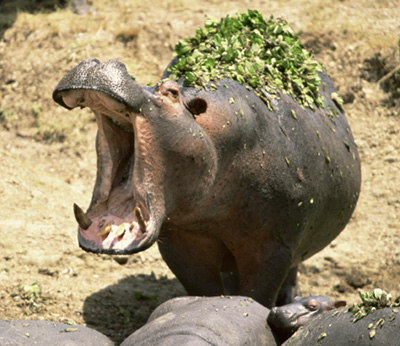

Which explains all the Nobel prizes awarded to
Kenyans.
Your mother was right: Fish really is "brain food." And it seems that even pre-humans living as far back as 2 million years ago somehow knew it.
A team of researchers that included Johns Hopkins University geologist Naomi Levin has found that early hominids living in what is now northern Kenya ate a wider variety of foods than previously thought, including fish and aquatic animals such as turtles and crocodiles. Rich in protein and nutrients, these foods may have played a key role in the development of a larger, more human-like brain in our early forebears, which some anthropologists believe happened around 2 million years ago, according to the researchers' study.
"Considering that growing a bigger brain requires many nutrients and calories, anthropologists have posited that adding meat to their diet was key to the development of a larger brain," said Levin, an assistant professor in the Morton K. Blaustein Department of Earth and Planetary Sciences at Johns Hopkins' Krieger School of Arts and Sciences. "Before now, we have never had such a wealth of data that actually demonstrates the wide variety of animal resources that early humans accessed." Levin served as the main geologist on the team, which included scientists from the United States, South Africa, Kenya, Australia and the United Kingdom.
A paper on the study was published recently in Proceedings of the National Academy of Sciences and offers first-ever evidence of such dietary variety among early pre-humans.
In 2004, the team discovered a 1.95 million-year-old site in northern Kenya and spent four years excavating it, yielding thousands of fossilized tools and bones. According to paper's lead author David Braun of the University of Cape Town (South Africa), the site provided the right conditions to preserve those valuable artifacts.
"At sites of this age, we often consider ourselves lucky if we find any bone associated with stone tools. But here, we found everything from small bird bones to hippopotamus leg bones," Braun said.
In the West, it's more like you are what you eat:














No comments:
Post a Comment